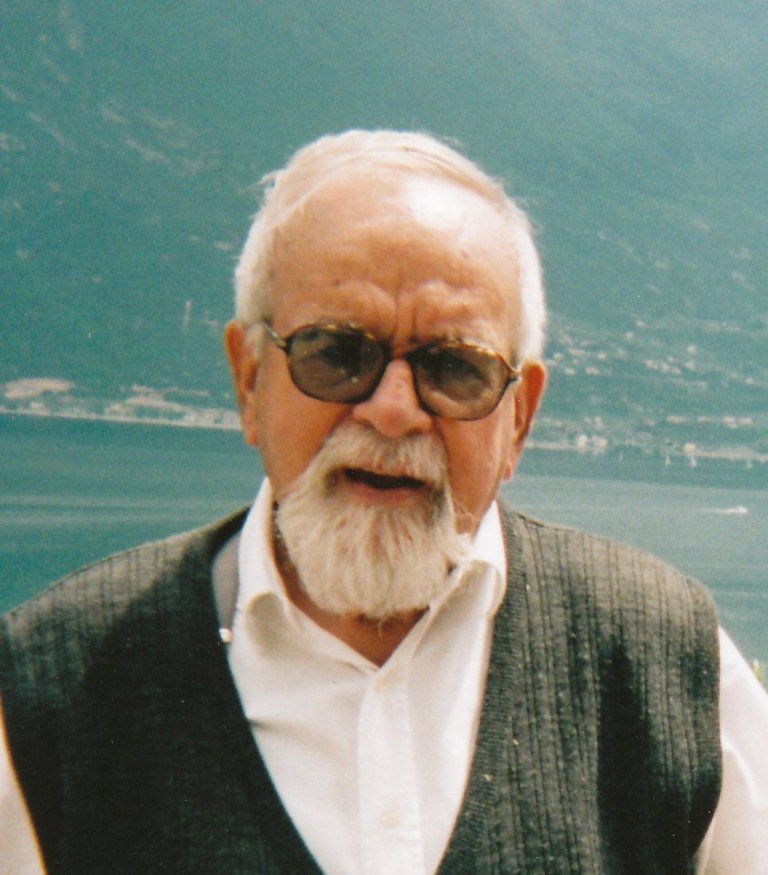Daniel Comboni
Comboni Missionaries
Institutional area
Other links
Newsletter
In Pace Christi
Pezzin Felice
Fr. Felice Pezzin was born on 25 October, 1920, at Valda, in the Province of Trent. In September, 1931, he entered the minor seminary of Muralta at the early age of eleven. He did the novitiate at Venegono, the scholasticate at Verona and then went to Rebbio and Crema as prefect. “He was one of our formators and teachers – recalls Fr. Pietro Ravasio who met him for the first time at Crema, in the early forties – but most of all he was a person who showed us, very young aspirants, great care and sincere friendship”.
Felice was ordained priest on 26 May, 1945, by Mgr. Francesco Maria Franco, Bishop of Crema. He worked at Troia, Bologna and Trent as a teacher from 1946 to 1948.
In November, 1948, he left for Bahr el Ghazal and was appointed to Mupoi among the Azande where he arrived after a long journey. At Wau, the capital of the Province of Bahr el Ghazal and see of the Vicariate of the same name, Fr. Felice and the other missionaries were warmly welcomed by Mgr. Eduardo Mason, the Vicar Apostolic.
In early 1949, the territory of the south of the vicariate of Bahr el Ghazal became an Apostolic Prefecture and the great Azande people were entrusted to Mgr. Domenico Ferrara, the first Prefect Apostolic. With him, as Fr. Felice would later say, there was a “boom in evangelisation”, even amounting to 75% of the population becoming Catholics by 1964, the year when the missionaries, including Mgr. Ferrara, were expelled.
In August of 1950, Fr. Felice was sent to England to do the “Colonial Course”, a sort of improvement school that took for granted a good knowledge of English. This was not an easy matter for one not particularly gifted in languages.
Meanwhile, the Sudanese government was imposing ever greater restrictions on the missionaries in order to hamper the work of evangelisation. They were forbidden, for example, to baptise or teach catechism outside the mission. Then there were the lists of people expelled and the refusal to renew the permits of others. For this reason, after his return from England in 1951, Fr. Felice stayed in Mupoi without taking holidays until February 1964, for fear of losing his permit.
After the missionaries were expelled, the Christians were left with the few Azande priests they had, as persecution and guerrilla warfare broke out. Many Azande left Sudan for Zaire or central Africa. In 1966, the Comboni Missionaries were sent to Central Africa to provide for their pastoral needs; among them was Fr. Felice.
First, however, he spent a period of three years as Superior of the Apostolic School of Barolo in Italy. Immediately afterwards he was sent to Central Africa and arrived at Bangui on 13 November, 1967 together with Fr. Gianantonio Berti and Bro. Carlo Mosca (with whom he had already spent ten years in Sudan) at the parish of Notre Dame de Fatima where he remained for forty years as provincial procurator and bursar but also involved in ministry and as Parish Priest. His first task there was to study Sango, the national language and also French.
He looked after the refugees for a number of years: getting entry permits for people coming to the country, receiving them at the points of entry, finding means of transport to the East. This was not an easy task given the distance of more than Km 1,200, and more so due to the poor roads. Such journeys took an entire week. He spent much of the day buying provisions in the city and looking for reliable transport to the East; in the afternoon, wearing his apron, he would prepare parcels for the refugees, fill the empty spaces with clothes and other items he knew would please the missionaries in the distant missions that lacked nearly everything.
During his many long years in the missions, besides carrying out his tasks with diligence and serenity, Fr. Felice would correspond almost every month – for more than 25 years – with relatives and friends. In his letters there was an amount of information of all sorts. Fr. Felice told in detail of all that was happening in the mission; arrivals and departures of confreres and Sisters, anniversaries, events, appointments, the results of elections, assemblies, meetings, building work and even the weather!
In 2001, he returned to Italy for holidays and a medical check-up that delayed his departure for central Africa by a few months. Back in Bangui, he had to reduce his activities and slow down on account of his advanced age. In 2007, he returned to Italy for good.
After a period spent at the Mother House in Verona, he went to Arco and then again to Verona where he died on 19 July, 2012. After the funeral at the Mother House of Verona on 21 July, Fr. Felice was buried at Valda, his native village.
“All his years as a Comboni Missionary – writes Fr. Gianantonio Berti – Fr. Felice Pezzin was a faithful, careful and dynamic servant of the mission in Africa. With the passing of Fr. Felice, the time of the first founding missions also came to an end in Central Africa”.
Da Mccj Bulletin n. 254 suppl. In Memoriam, gennaio 2013, pp. 32-39.

